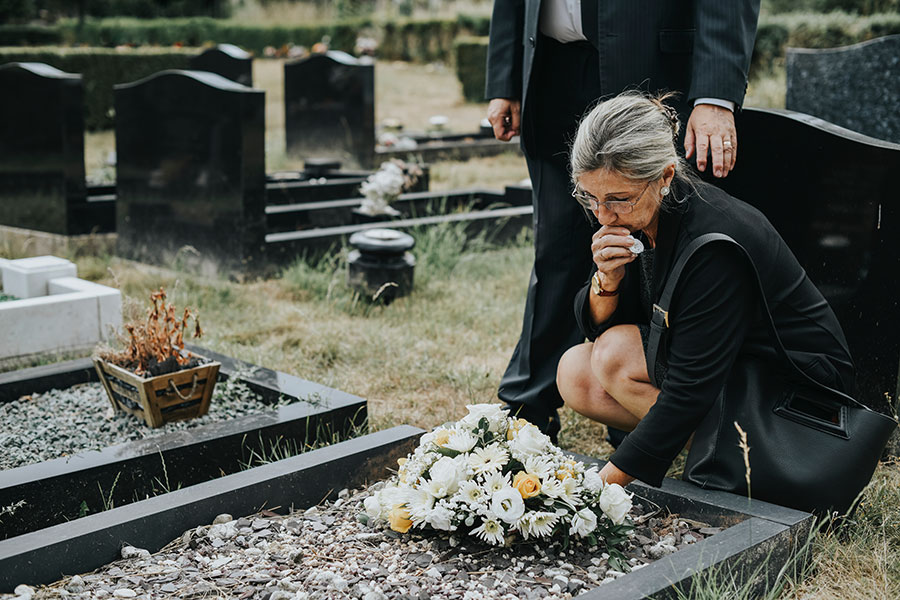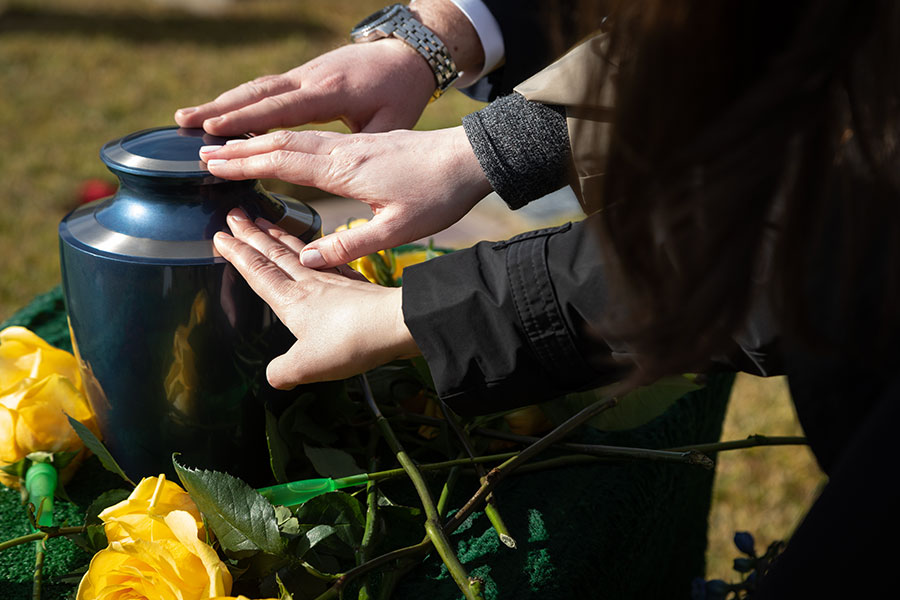Wrongful Death
The unexpected passing of a loved one is always a profoundly challenging experience, but when a family member’s demise results from another person’s negligence or recklessness, the pain becomes even more unbearable.
When an individual loses their life due to the wrongful actions or gross negligence of another, it is legally referred to as a “wrongful death.” These cases are among the most heart-wrenching, and tragically, they occur far too frequently, often stemming from incidents such as motorcycle accidents.
At Crane Law, we deeply empathize with your anguish and sorrow, as some of our attorneys have personally endured the tragedy of an accidental death within their own families. We’ve been on both sides of the equation, serving as both clients and attorneys, and our utmost desire is to assist you in navigating the legal aspects that accompany life’s most profound loss.
At Crane Law, we handle employment, discrimination and personal injury cases throughout Michigan.
Since 1995, Steve Crane has successfully represented persons like you.
As an experienced lawyer, Steve can gauge when it makes sense to go to court. He knows that a letter or phone call — with proper wording and timing — can be more effective or cost-efficient than suing for damages or injunctive relief.
For those cases that must be presented to a judge or jury, he is eminently qualified to assert your interests.
If you have sustained a workplace injury, call Steve free. He and his team can assess the facts of your case and help you determine the best course of action to move forward.
To schedule a discrete and confidential consultation about your matter, call Steve free at (888) 855-4400.
What is a “wrongful death”?
Under Michigan law, a wrongful death is defined as a death caused by any “wrongful act, neglect, or fault of another” that would have allowed the person to file a personal injury lawsuit had he or she lived.
Michigan law considers it to be a wrongful death when a “wrongful or negligent act” causes a pregnant woman to suffer a miscarriage. (Mich. Comp. Laws §§ 600.2922, 600.2922a (2021).)
A wrongful death lawsuit is a type of civil legal action that can be brought by the survivors of a deceased person who died because of a wrongful act or negligence. For someone to succeed in bringing a wrongful death case, they must prove the following elements by a preponderance of the evidence:
- The death of a person;
- Caused by the negligence, or willful intent, of another; and
- The surviving family suffered damages as a result of the death.
A wrongful death claim can arise when one person dies due to the legal fault of another person or entity, including by:
- a negligence-based incident (such as a car accident)
- medical malpractice, or
- an intentional act (including a crime).
As in other types of personal injury lawsuits, in a successful wrongful death case, the defendant’s liability is expressed solely in terms of financial compensation (“damages”) that the court orders the defendant to pay to the deceased person’s survivors or estate. This is one major difference between a wrongful death lawsuit and a criminal homicide case, where a conviction can result in jail or prison time, fines paid to the state, probation, and other penalties.
Who can file a wrongful death lawsuit in Michigan?
In Michigan, a wrongful death lawsuit allows family members to recover compensation for pain and suffering and other noneconomic and economic losses damages when a person dies as a result of a wrongful act, or due to the negligence or fault of another person, (MCL 600.2922(1), (3) and (6))
According to Michigan law, only specific individuals can initiate a wrongful death lawsuit. If you do not fall within the category of qualifying parties or act as a representative of the deceased individual, regrettably, you may not have the legal authority to pursue damages.
The people who get the money in a wrongful death lawsuit include the following surviving members of the deceased person’s family: (1) spouse; (2) children; (3) descendants; (4) parents; (5) grandparents; and (6) siblings. (MCL 600.2922(3))
Specifically, the deceased’s family members who get the money from this type of lawsuit are:
- The deceased’s spouse.
- The deceased’s children.
- The deceased’s descendants.
- The deceased’s parents.
- The deceased’s grandparents.
- The deceased’s siblings.
- The deceased’s heirs if there is no will.
- Children of the deceased’s spouse.
- Devisees under the deceased’s will.
- Persons designated in the will.
In cases where someone’s demise is a result of another party’s negligence, the law permits the deceased person’s next of kin and their estate to act as plaintiffs in a civil action aimed at seeking both economic and non-economic damages. This principle holds true even if the deceased individual bore partial responsibility (comparative fault) for the events leading to the fatal incident. In instances where death is a consequence of a drunk driver’s actions, punitive damages may also be granted.
The term “next of kin” encompasses surviving family members, such as a spouse, domestic partner, children, parents, or siblings. They are prioritized in the order specified for making a claim. In cases where a parent passes away, the surviving spouse or partner, as well as the children, may all be eligible to serve as plaintiffs. Additionally, anyone else who would have been likely to receive support if the deceased had continued to live may also have standing to file a claim.

Common causes leading wrongful death lawsuits
Many types of accidents can result in wrongful deaths. Unfortunately, California experiences a significant number of preventable fatalities each year, with many occurring on its perilous highways and roads. Common causes of wrongful deaths in California include:
- Commercial Truck Accidents
- Motor Vehicle Accidents
- Motorcycle Accidents
- Drunk Driving Incidents
- Bicycle Accidents
- Pedestrian Accidents
- Cases Involving Defective Products
- Exposure to Toxic Waste
- Medical Malpractice
- Premises-Related Accidents
- Intentional Acts, including murder, manslaughter, arson, and other deliberate actions.

The Deadline for brining my wrongful death lawsuit
You must act promptly after someone dies if you believe that they have died because of someone’s negligence. There are time limits for you to act, called statutes of limitations, which require you to bring a lawsuit within a limited period or risk losing the right to seek a recovery.
Statutes of limitations balance the competing interests of plaintiffs and defendants so as to provide the plaintiff time to investigate and find an attorney while giving a defendant some assurance that after a period of time, if no action has been brought, they will not be sued. Statutes of limitations in cases of accidental death can be as short as six months (if a governmental agency caused the harm). The time you have to act depends on who caused the accidental death, how it occurred, and where it took place (different states have different statutes of limitations). In California the typical statute of limitations provides two years to bring a lawsuit for negligence but can be as short as 6 months depending on the circumstances.
Why trust us to handle your wrongful death case?
Experience: Our team of skilled attorneys has successfully represented construction workers in a wide array of accident cases, winning substantial settlements and verdicts.
Attention to Detail: We conduct thorough investigations, collaborate with experts, and gather evidence to build a robust case.
Client-Focused: Your well-being is our priority. We provide individualized attention, always keeping you informed and involved in your case.
Risk-Free Consultation: Reach out to us for a free, no-obligation consultation to discuss your case and potential avenues for compensation.
Contingency Fees: We operate on a “No Win, No Fee” basis. You won’t pay a dime unless we secure compensation for you.

Time is of the essence. Do not wait to file a claim.
Michigan’s Wrongful Death Act does not include a statute of limitations. Instead, the statute of limitations for the underlying cause of action (i.e., negligence) applies. In the case of wrongful death actions based on general negligence, the statute of limitations is three years. Individuals who have suffered injuries have a three-year window starting from the date of the injury to initiate a personal injury claim, seeking compensation for the array of damages resulting from the accident. However, the window could be much shorter than three years. It all depends on the facts surrounding the incident giving rise to injuries. Failing to take legal action within this specified timeframe renders victims unable to pursue a claim.
